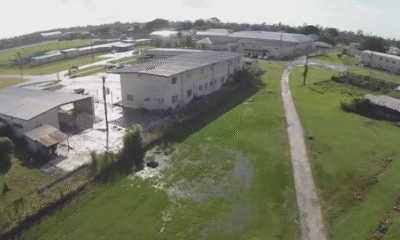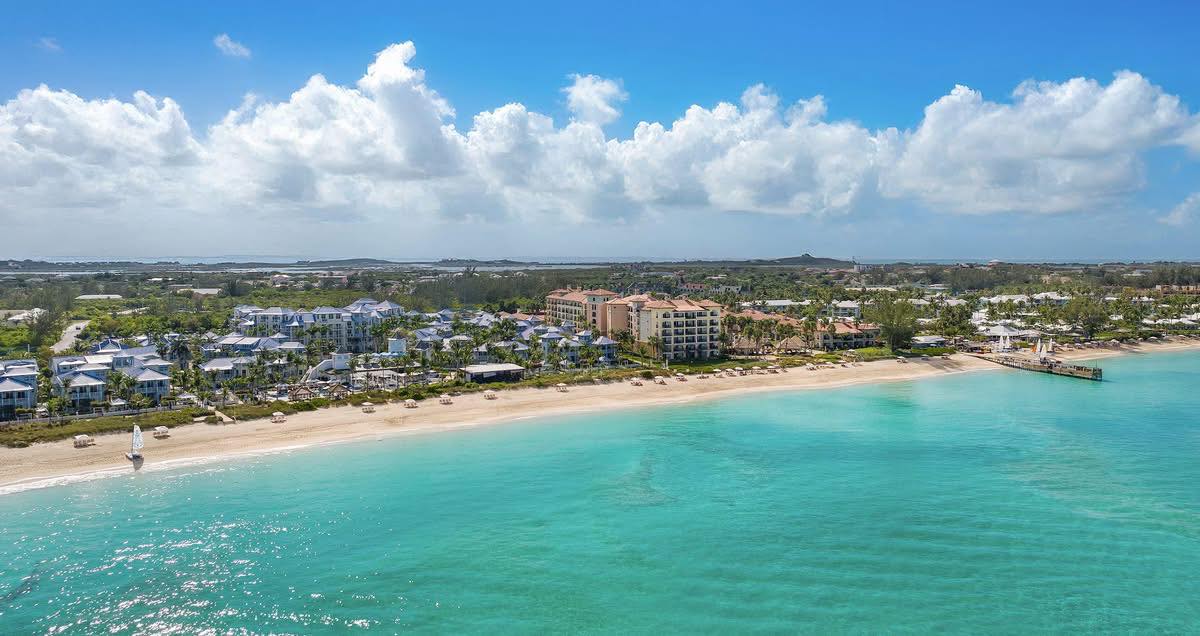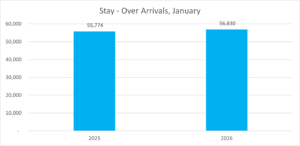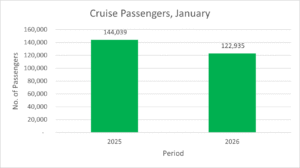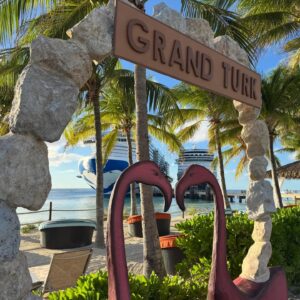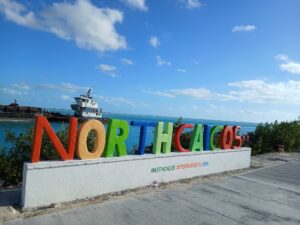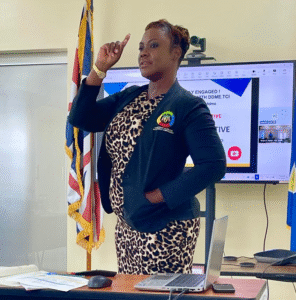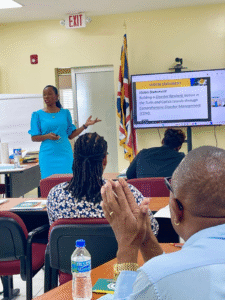Deandrea Hamilton
Editor
Turks and Caicos, January 27, 2025 – When there has been a total of 118 lives brutally and callously ended by unrelenting homicidal criminals over the course of one’s tenure as head of elected government, and when that number reflects a boom in violence that is heart-rending, there grows immense public pressure to explain why there isn’t a more firm handle on crime by now.
In the Turks and Caicos Islands, this is especially true as the tiny archipelago nestled in the Atlantic has been beset by media reports which expose an out of control situation.
The escalation in homicides is fuelled by clashing gang syndicates, said to have spilled into the British overseas territory from neighbouring Caribbean countries. The onslaught has overwhelmed local law enforcement and landed the country at the top of the list of nations with the highest murder rates anywhere in the world.
The escalating crime has plagued the last two government administrations most. Both Sharlene Cartwright-Robinson and Charles Washington Misick have faced punishing criticism on crime; so have the British appointed Governors, (there have been five) who are actually the lead – in the territory – on national security.
While former premier, Rufus Ewing (PNP) saw 21 murders over his four years in office, Cartwright-Robinson, as premier witnessed seven murders grow to nine, then nine grow to 14 and 14 surge to 22 by 2020 just ahead of the pandemic which had forced lockdowns and other restrictive measures.
Crime under the current Washington Misick government has jumped over 300% since the days of Ewing. This meteoric rise in the murder rate is also a 227% jump over the Sharlene Cartwright-Robinson (PDM) administration which ran from December 2016 through February 2021. The country’s first woman premier recorded a total of 52 murders in the four calendar years when she served.
For Misick, it has been an epic challenge. From 13 homicides in 2021 when he took office, to 34 a year later, 23 homicides in 2022-23 to now 48 killings in 2024. Already three murders have happened this year.
The statistics come from published TCI media reports, fed by data from the Royal Turks and Caicos Islands Police Force. While there is some ambiguity and inconsistency on how Police communicate crime statistics, we did our part to source the figures from the Police as the official source in almost all cases.
The comparison by our news organization follows comments from the Leader of the Opposition and the retort by the current Premier, who found themselves pointing a wagging finger at each other earlier this week. The men, who are fast approaching a definitive national poll are blaming and claiming. Blaming the other for the surge in crime. Claiming their party has what it takes to deliver on promises to the public to bring about an abatement in crime.
We checked the numbers and it is tragic all around. No one is a winner. And while both political teams often say, crime should not be politicised, it is an indisputable fact, that Electors will more likely be giving their votes to the party with a more impressive pitch on stopping the violence.
“When my government took office in 2021, crime was already a growing crisis. A wave of violence had been allowed to fester under the failed policies of the past. The so-called “twelve-point crime plans” of the previous administrations were nothing more than hollow promises, leaving our communities vulnerable and our Police Force under-resourced.
We refused to let this trend continue. Over the last four years, my government has made unprecedented investments in law enforcement and the judiciary—$147 million to date, including $125 million allocated specifically to the Police Force. These funds reflect not just our commitment, but our resolve to give our law enforcement agencies the tools, training, and support they need to protect our people,” said the Premier on Tuesday.
In a statement issued after the more recent murders, the PDM said, “Under the leadership of the PNP, crime has spiraled out of control in the Turks and Caicos Islands, and the lack of an effective strategy to address it is unacceptable.
The safety and security of our people and visitors should be the government’s top priority, yet we are witnessing continued inaction and mismanagement,” chastised Edwin Astwood on Sunday.
On Tuesday, the Premier’s press conference was convened to shed light and allay public dismay about any thought that his government was incapable of putting a choke hold on the unrelenting murderous crime and violence. A press conference, which was necessary because there had been a shooting at a top rated night spot on Grace Bay, the country’s luxury tourism hub.
Three people were shot, including a tourist who was a police officer visiting the island. Shamone Duncan, a 50-year old Cook County Sheriff’s deputy on vacation in Providenciales will not be returning to her son and grandchild in Chicago.
Also shot by an errand bullet, Dario Stubbs, a father, husband, beloved son and insurance professional hailing from South Caicos. He was picking up his wife from work. His young daughter was also there.
The stunning crime sent shockwaves across the nation and news of it quickly spread to the islands’ leading tourism source market, where one of the victims is from, the USA.
ABC News reported: “The fifty year old grandmother was on her second of three nights on the island, vacationing for her sister’s birthday. Along with two of her sisters were at a roof-top party Saturday night at a restaurant, when others began to argue downstairs. That’s when her son says a shootout ensued.”
His mother was among those told to get down; his mom instead got up.
“And that’s when she got hit,” explained her adult son, Peyton, who was awash in tears; his devastation undeniable.
It was crushing news and the Premier has vowed to find the perpetrators.
“These heinous acts are unacceptable, and let me assure you: my government will not rest until justice is served and peace is restored to every street, every home, and every corner of our nation.
This is not just a commitment to one family but to all families who have suffered because of crime in our islands,” said the Premier.
To date, no arrests have been made though police investigators say they are close.
Imagine residents ten years ago being incensed by four murders for the year, now having to come to grips with a staggering 48 deadly shootings and dozens more suffering gunshot wounds. It would not be unfair to say that the last 16 years have been a living hell for far too many families and guests to the Turks and Caicos Islands.
There were at least 191 murders during that time. Now, both political leaders are promising relief.
From the PDM, “The PDM has consistently outlined our comprehensive plan to tackle crime and violence head-on, including: Strengthening law enforcement with advanced training, technology, and resources. This includes increasing surveillance of our streets, neighborhoods and tourist hot spots; Implementing community policing to rebuild trust between residents and law enforcement; Securing our borders to prevent the illegal influx of firearms and drugs fueling criminal activities and Investing in youth empowerment programs to address the root causes of crime and create opportunities for at-risk youth.”
prevent the illegal influx of firearms and drugs fueling criminal activities and Investing in youth empowerment programs to address the root causes of crime and create opportunities for at-risk youth.”
Premier Misick talked about some of his actions since the triple shooting.
“I also spoke to the Minister representing the Overseas Territories in the FCDO yesterday morning and expressed my view that HMG is not doing enough to assist the TCI.
Let me be clear: these tragedies demand not just words but decisive action,” he said.
Misick reflected on an emergency Cabinet meeting and actions taken then.
“On Monday, Cabinet approved $500,000 in special funding to bring in specialized tactical police units from across the Caribbean. These highly trained officers will provide critical expertise and manpower.
An additional $100,000 has been allocated to TCI Crimestoppers to support community cooperation through rewards and tips.
We have also strengthened our partnerships with regional allies through CARICOM Council for National Security and Law Enforcement (CONSLE). These partnerships ensure that we have access to additional resources, expertise, and boots on the ground to tackle crime from every angle.”
On Saturday January 25, the country learned that 50 more armed police officers will join the local Force from the UK and the Caribbean region. The UK Department of Defence in response to the urgency of the TCI National Security Council has included more intelligence and investigative specialists, they will join five others who are already in the country, working and charged with an intelligence-led approach to uprooting the disorganised crime which has been allowed to plant itself in the islands.



 News4 days ago
News4 days ago
 News1 week ago
News1 week ago
 Caribbean News5 days ago
Caribbean News5 days ago
 News4 days ago
News4 days ago


